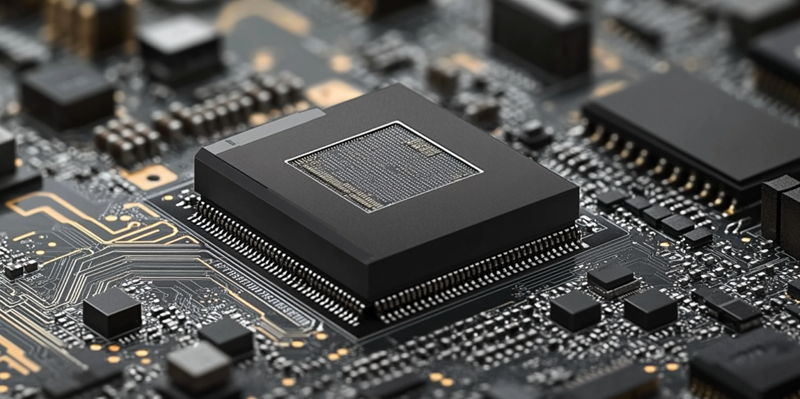As the global semiconductor foundry landscape becomes ever more competitive, Intel Foundry and Samsung Foundry are reportedly in preliminary discussions to form a partnership aimed at challenging the dominance of Taiwan Semiconductor Manufacturing Company (TSMC). The semiconductor industry is critical, as it supports top tech companies such as Apple, Nvidia, AMD, and Intel itself, all of which currently rely heavily on TSMC’s advanced manufacturing capabilities. Despite both Intel’s and Samsung’s aggressive efforts over the years, neither company has been able to significantly dent TSMC’s commanding market share.
Potential Collaboration Initiatives
The reported talks between Intel and Samsung gained traction following a proposal from Intel CEO Pat Gelsinger, who initiated the idea of a high-level meeting to explore a potential collaboration. This strategic move is seen as an opportunity for both companies to pool resources, including advanced facilities, innovative R&D initiatives, and state-of-the-art process technologies. Samsung, for example, has the advantage of leading in the production of gate-all-around (GAA) transistors, which precede TSMC’s anticipated introduction of the technology. However, Samsung’s current low production yields—ranging between 10% and 20%—pose questions about how much it can realistically contribute to the proposed venture.
The idea of sharing resources between Intel and Samsung extends beyond mere technology exchanges. By coalescing their strengths, the companies aim to mitigate the significant costs and risks associated with semiconductor R&D and production. This arrangement could potentially fast-track both companies’ abilities to innovate and deliver cutting-edge solutions more efficiently. Despite these benefits, one of the major challenges remains the deep-rooted customer loyalty to TSMC, which has long-term relationships with industry giants like Apple and Nvidia.
Strategic Goals and Market Challenges
Intel’s ambitious plans to reclaim process technology leadership by 2025 with its Intel 18A process are well documented. However, achieving the technological and engineering dominance needed to lure major clients away from TSMC will likely take many years. This anticipated timeline underscores the importance of any strategic collaboration with Samsung, which could bolster both companies’ capacities in a shorter period than they might achieve independently. One of the partnership’s primary goals would be to combine their complementary strengths to offer a credible alternative to TSMC’s services and capabilities.
Despite the early stage of these discussions—described by some insiders as merely a trial balloon—the potential for shared facilities and divided R&D efforts represents a proactive strategy aimed at overcoming the significant competitive barriers both companies face. By addressing their respective weaknesses, Intel and Samsung hope to create a stronger, unified front that can more effectively contend with TSMC’s market leadership. This move not only aims to improve their technological standings but also seeks to enhance their customer relationships and broaden their client base.
Conclusion
As the global landscape of semiconductor foundries becomes increasingly competitive, Intel Foundry and Samsung Foundry are reportedly in early discussions to form a partnership with the goal of challenging Taiwan Semiconductor Manufacturing Company (TSMC)’s dominance. The semiconductor industry is essential, supporting leading tech companies like Apple, Nvidia, AMD, and Intel. These companies currently depend heavily on TSMC’s cutting-edge manufacturing capabilities. While both Intel and Samsung have made aggressive efforts over the years to capture a larger share of the market, neither has managed to significantly reduce TSMC’s commanding position. This potential partnership could be a strategic move to leverage each company’s strengths and resources to create a more formidable competitor to TSMC.
Given the continuous demand for advanced semiconductors in a variety of industries, from consumer electronics to automotive, the collaboration between Intel and Samsung could potentially reshape the industry dynamics. However, it remains to be seen how effective this alliance will be in achieving its ambitious objectives.

